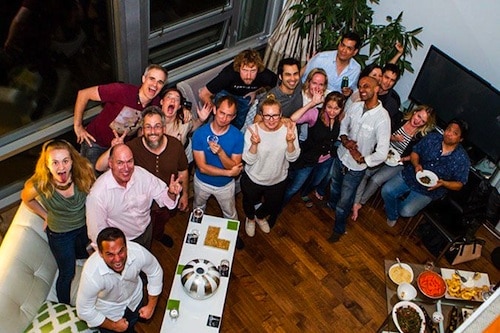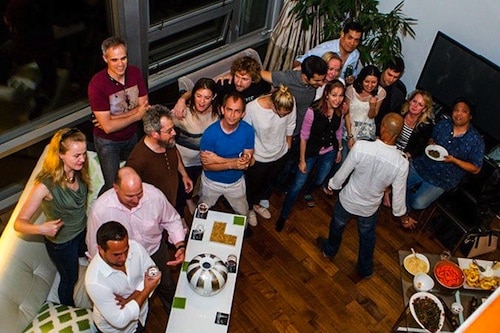A popular added event at the February 2014 Foresight Conference was the B.R.AI.N.S Immortalist Audit focusing on what self-described “Life-Extensionists” are doing to cure disease and extend healthy human life, and how attendees could help. Photos from the Conference present a who’s who of principal players in biotechnology-, and life extension-related startups and research organizations. An April 16 B.R.AI.N.S salon on Human Biology and Freedom capped a successful Crowdtilt community fundraising campaign to build a strategic alliance between B.R.AI.N.S., Berkeley BioLabs and Foresight Institute to build an opensource biological parts repository and design and distribute a line of “How-to Build Biological Machines” educational kits.
Physical projects in the form of kits drive understanding in the physical manipulation of tools as well as the manipulation of ideas—this is the real advantage of experiential learning. This synthesis through experiential learning reaches deeper, creating an enhanced network of mental connections opening up potential for yet more, new connections as the experience base grows exponentially, kit over kit.
Robert P. Meagley, Ph.D., Senior Research Fellow
Foresight Institute & ONE NanotechnologiesForesight Institute is committed to fostering emerging technologies, such as BBL’s programs, in an effort to hasten the realization of Atomically Precise Manufacturing.
Moving forward in 2014 we are hunkering down and focusing on strengthening the pro-tech, pro-freedom community based here in the Bay Area.
Paul Melnyk, President
Foresight Institute
A couple photos from the event, courtesy of Dinelle Lucchesi, B.R.AI.N.S. Founder:
Regular Nanodot readers, or those who have browsed the Technology Roadmap for Productive Nanosystems, will know that engineering DNA, proteins, and RNA all provide potential paths toward atomically precise manufacturing. We can hope this alliance and the kits they will supply spread the meme that biological machines are indeed machines that can be engineered, perhaps leading to molecular machine systems capable of a wider range of functions than are found in biological systems. The fact this is to be an open source biological machine parts repository is also interesting. Given the contribution of the Open Source Initiative to the development of the Information Revolution one can wonder if this effort could herald the beginnings of an open source development of molecular manufacturing.
—James Lewis, PhD



